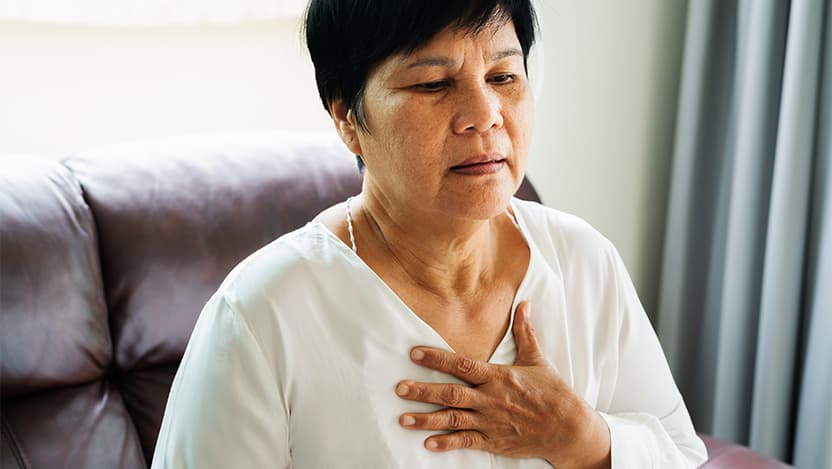What heart disease patients should know about coronavirus (COVID-19)

Am I more likely to get COVID-19 if I have heart disease?
Having heart disease does not necessarily mean you are more likely to get COVID-19. Because this is a novel coronavirus, we are still exploring what makes some patients more susceptible to infection. However, those patients with pre-existing health conditions such as obesity, pulmonary disease, high blood pressure (hypertension) and heart failure are at higher risk for a more severe infection if they get COVID-19. These medical conditions decrease the natural reserves that the body has to fight this infection.
Are there specific heart conditions that make people more at risk for COVID-19?
We worry most about heart transplant patients and those who are immunosuppressed, meaning that their immune system is not functioning as it should. COVID-19 can trigger overwhelming inflammatory responses with pneumonia, characterized by shortness of breath and cough from inflammation of the airway and air sacs in the lungs. Patients with heart failure may be particularly challenged. Like in the case of bacterial sepsis, COVID-19 can also impose cardiac stress and injury on the heart. At this point in time, it does not appear that COVID-19 causes a direct infection of heart muscle tissue (myocarditis), but dysfunction of the heart as a response to inflammation has been reported.
How does COVID-19 affect people with heart conditions?
COVID-19 enters the body through a receptor called angiotensin converting enzyme 2 (ACE2), which is present in the lungs and nasopharynx, the upper part of the throat behind the nose. As many have heard, this receptor may be upregulated or become more sensitive in patients taking ACE inhibitors (ACEi) or angiotensin-receptor blockers (ARBs), which are used to treat high blood pressure. The American College of Cardiology and current guidelines have not concluded that patients should stop taking these medications for fear of increasing risk for infection or severity of infection. There are emerging data from China that actually suggests patients on ACEi and ARB had improved outcomes compared to those not taking these medications upon admission, so at this point in time patients taking ACEi or ARB should not consider stopping them.
Have patients with COVID-19 developed heart rhythm abnormalities?
We have not observed a high number of arrhythmia cases specifically related to this virus. As with any bacterial or viral infection, there can be an increase of stress on the body through a condition called sepsis (systemic infection) from which arrhythmias can arise. Atrial fibrillation (AFib) – the most common type of arrhythmia – is commonly triggered by an infection. There have been reports of COVID-19 patients with heart block, when the heart beats too slowly, and ventricular tachycardia, when the heart beats too fast, but fortunately this appears to occur in fewer than 10% of cases. We are on the lookout for arrhythmia cases in all patients in our COVID-19 units at UChicago Medicine and are actively performing analyses. If medications hydroxychloroquine and azithromycin are proven to be effective for COVID-19 and emerge as mainstay treatments, we may need to be careful to watch out for QT prolongation, a rare side effect that can create a dangerous arrhythmia.
Should I keep taking my heart medication?
Yes, we recommend patients continue to take all heart medications. At present, there are no established reasons to stop any medications because of COVID-19. For patients who are taking medications, be sure you're up-to-date with your supply at home. Talk to your cardiologist and your pharmacist about making sure you have everything you need to minimize having to go out to the pharmacy more than necessary.
How should I prevent COVID-19 if I have a heart condition?
Practice social and physical distancing by staying at least 6 feet apart from others, avoid any crowded places and stay home! Frequent and thorough handwashing is essential as we touch our faces much more than we think. If you have a heart condition, we recommend that you wear a mask if you must be in public. Homemade masks are acceptable in order to avoid depleting the supply for medical professionals on the front lines.
Should I keep my appointment with my heart doctor?
If you have a scheduled appointment for your heart condition, we recommend that you convert non-emergent visits to telehealth visits over the internet with video and audio. Many patients have really enjoyed visiting their doctor from their own home.

